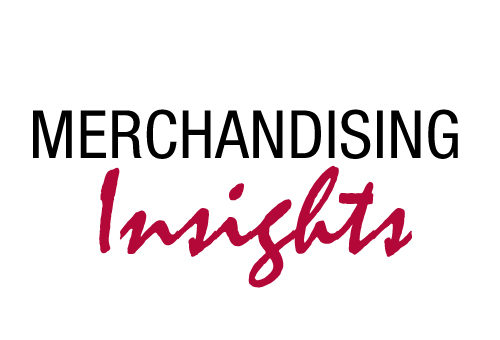States have a variety of laws governing the “practice of medicine,” and the U.S. Food and Drug Administration (FDA), under the U.S. Dietary Supplement Health and Education Act of 1994 (DSHEA) regulates the manufacture and sale of “dietary supplements” as a type of food, as opposed to drugs.
Flash quiz: If someone walks into your store and says, “My knees hurt. I think I have arthritis.” And you say, “Come over here. We have some glucosamine and chondroitin that may be helpful for you.” Are you acting within the boundaries of DSHEA?
If you said no, you are correct. Responding directly to a customer’s illness self-diagnosis by suggesting the purchase and use of a specific product for that condition is diagnosing and treating disease under DSHEA. And, depending on your store’s location, you may also be subject to state legal action for practicing medicine without a license.
How about this situation? A customer says she has gout, and you respond by saying that many of your customers have had success in relieving gout symptoms using black cherry juice. This is a simple testimonial, right? Wrong. By adopting the words of others, you convert that testimonial into a disease claim under DSHEA and are now treating gout.
Free Speech—With Limits
Can we agree that the average health food store has, for years, typically sold dietary supplements by what would be considered in the eyes of the law diagnosing and treating disease? Anyone working in a retail-store environment intuitively knows how this happens. Our natural human empathy, plus the psychological pressure of being face-to-face with your customer, compels you to be as helpful as possible. You also want your customer to believe you are competent, so you tend to share all you know about a particular health concern. This is the path of least resistance in a live retail setting, allowing you to create a comfortable interaction with your customer and an efficient sale. But as you can see from the examples above, this very human approach may put you afoul of multiple state and federal laws.
While DSHEA protects your freedom-of-speech right to describe to your customers how dietary supplements support the healthy function of body structures and systems in general, DSHEA, as well as myriad state laws, forbid addressing these potential effects and benefits in a particular individual. If you’ve been handling your customer interactions in the ways described above, you may have a tough time reprogramming these habits to stay within the letter of the law. But, in today’s atmosphere of heightened state and federal scrutiny—remember last year’s “secret shopper” ambushes by the federal Government Accountability Office? (see my column in WholeFoods Magazine, July, 2010, Merchandising Insights)—you would be wise to consider doing so.
Safe Speech—A Discipline
The best independent natural products retailers I know have found a way to consistently and reliably diffuse the social pressure to answer disease questions directly. Customers may be anxious, demanding or easygoing, but by merely asking about or stating a health concern, they exert real pressure on you to address their particular issue.
To avoid this problem, my retailer friends respond to disease questions or concerns with a brief—and friendly—universal disclaimer. I’ll give you the disclaimer in a minute, but first I need to explain how to deliver it to your customer. You know the famous quote, “It’s not what you say; it’s how you say it.” Well, tone of voice, body language and facial expression are critical to making your disclaimer work. A comforting non-verbal message can draw your customer closer to you emotionally, encouraging a purchase, while wrong body language can kill a sale. I recommend you role-play handling the most common customer questions until your team is comfortable.
While there are many approaches, and each team member will have his or her own style, some general rules apply: Smile. Make eye contact. Relax your shoulders and open your palms to face the customer. Folding arms—yours or your customer’s—across the chest usually means resistance to others. Your words should roll softly off your tongue. Keep smiling!
Now, here’s the disclaimer: “We don’t diagnose, treat, prevent or cure disease.” Sound familiar? Of course it is the same language FDA requires on dietary supplement labels. However, when you deliver it verbally to your customer—gently and sincerely—you are wisely lowering expectations and setting the stage for your conversation.
Health, Not Disease
Once you’ve set the boundaries for your conversation, you are ready to move into areas you can discuss. As you engage your customer, I recommend picturing in your mind the ideal “healthy” body. By imagining this ideal, you can respond to all questions and concerns in the context of health, not disease. Instead of saying “you” and “your,” you can substitute the universal, “the healthy body,” or “the healthy cardiovascular system.” You can explain how dietary supplements support the healthy structures and functions of “the body” just as effectively as you can describe their potential effects on a particular person or disease.
The difference is, when you describe how supplements support healthy body function in general, you are staying legal. When you apply this same information to a particular person or disease, you are putting yourself and your store in jeopardy. Once you get used to addressing your remarks to your imaginary, idealized healthy body, your conversations will begin to flow more smoothly. To help your customers understand the limitations you face under the law, you can explain, “I am going to talk about how [fill in the dietary ingredient or supplement here] supports a healthy body.”
Also, whenever a customer expresses a disease concern, suggest he or she consult a health care practitioner. Even though you are knowledgeable and confident you have helped hundreds achieve better health, you take on too much liability by assuming you know your customers’ complete health status, family history, diet, lifestyle and medical factors. Protect yourself!
Hiring Practitioners
Each state has its own licensure laws for the practice of medicine. Registered dietician or nurse, licensed or certified nutritionist (RD, RN, LN, CN), and other qualified practitioners may be legal in your state. Historically, dieticians in the mold of Western medicine have been hostile to alternative approaches, but this is changing. Beverly Hills, R.D., Ashley Koff, author of the book, Energy Mom, is a celebrity and enthusiastic holistic practitioner. Many RNs are becoming open-minded and enjoy working part time in natural products stores advising customers.
And, medical doctors—70% of whom take dietary supplements, by the way—are beginning to embrace complementary approaches, filling out natural “prescriptions” and referring patients to nearby stores they know and trust. Over the long term, our two universes; “alternative” and “Western” medicine, will increasingly cooperate and coordinate care to improve health outcomes.
If you upgrade your nutritional advice from well-meaning amateurs to licensed professionals—even starting on a part-time basis so you can afford it—you’ll get the dual benefits of differentiating your store from your competitors while ensuring you stay in the marketplace for the long term. WF
Jay Jacobowitz is president and founder of Retail Insights®, a  professional consulting service for natural products retailers established in 1998, and creator of Natural Insights for Well Being®, a comprehensive marketing service designed especially for independent natural products retailers. With 34 years of wholesale and retail industry experience, Jay has assisted in developing over 900 successful natural products retail stores in the U.S. and abroad. Jay is a popular author, educator, and speaker, and is the merchandising editor of WholeFoods Magazine, for which he writes Merchandising Insights and Tip of the Month. Jay also serves the Natural Products Association in several capacities. He will next be speaking at Southeast NPA’s SOHO Expo (Orlando, FL) on December 1, at 7:30 p.m. on “To Keep and Win Customers Today, Tell YOUR Story.” Jay will be available at booth #606. He can be reached at (800)328-0855 or via e-mail at jay@retailinsights.com.
professional consulting service for natural products retailers established in 1998, and creator of Natural Insights for Well Being®, a comprehensive marketing service designed especially for independent natural products retailers. With 34 years of wholesale and retail industry experience, Jay has assisted in developing over 900 successful natural products retail stores in the U.S. and abroad. Jay is a popular author, educator, and speaker, and is the merchandising editor of WholeFoods Magazine, for which he writes Merchandising Insights and Tip of the Month. Jay also serves the Natural Products Association in several capacities. He will next be speaking at Southeast NPA’s SOHO Expo (Orlando, FL) on December 1, at 7:30 p.m. on “To Keep and Win Customers Today, Tell YOUR Story.” Jay will be available at booth #606. He can be reached at (800)328-0855 or via e-mail at jay@retailinsights.com.
Published in WholeFoods Magazine, November 2011










